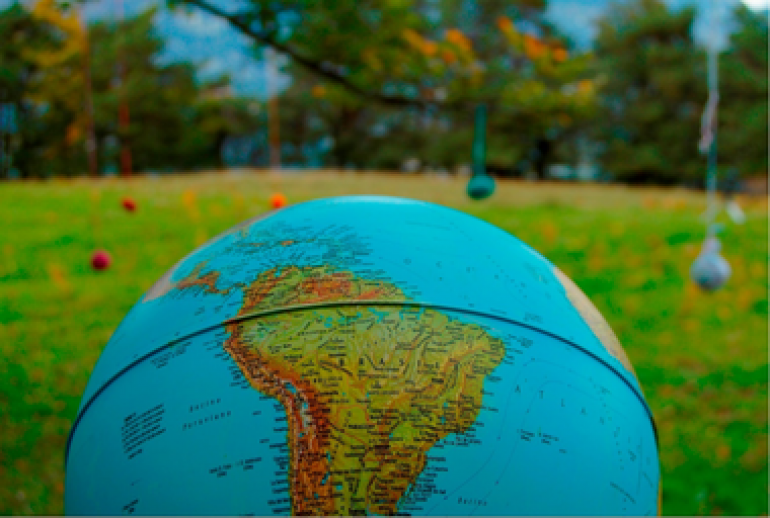
Institutions, schools and civil society come together to promote Global Citizenship Education. Trento 3-4 December, the programme.
Fostering active learning processes that stimulate change, personal engagement and informed action to face global challenges. This will be the central topic of the international seminar “Local policy for global schools”, to be held next December 3rd and 4th in Trento (Italy).
To contrast an unprecedented economic, social and cultural crisis, schools, institutions and civil society organisations can play a significant role in the redefinition of concepts such as citizenship, development, sustainability, integration and rights. For this transformative process to take place, however, a renewed commitment towards education is paramount.
Models based on domination of one part over another are very rooted in our societies, and similar patterns apply to educational systems. This approach leads to conflicting relations between individuals and peoples, especially when they belong to different cultural, religious, and social backgronds.
“By separating subjects and categorising them we have created hierarchies of knowledge and devalued other ways of learning. The detachment that is created by this process of compartmentalised education does not place us in a connected world and so we have been unable to build bridges to approach, get to know and understand others”. This is one of the principles underpinning the 'Guidelines for global education', drafted by the North-South Centre of the Council of Europe in 2008.
The Autonomous Province of Trento, the Training Center for International Cooperation (TCIC) and their 15 European partners involved in the project "Global Schools” aim at embedding Global Citizenship education as a cross-cutting theme in primary schools of 10 European countries; schools are called upon to promote education as a transformative learning process, aimed at raising a new generation of global citizens motivated by values of solidarity, peace, sustainability, justice, and inclusion.
The Guidelines of the Council of Europe envisage a future in which “by shifting the focus onto the transformation from a culture of reproduction and dominance to one of partnership based on dialogue and cooperation, global education modifies established global economy rules by restoring human dignity as a central value”.
Meanwhile, the OECD is currently working on the upgrade of the international parameters measured by the PISA Index (Program for International Student Assessment) that, starting from 2018, should be widened to measure the 'global compentence' of students, that is to say their awareness of the current world affairs and their ability to effectively deal with the consequences of interdependence and globalization.
During the event, CSOs, schools, and local authorities will reflect on their experience in the promotion of Global Citizenship education, the challenges faced, the proposed solutions.
Professor Massimo Amadio, Senior Programme Secialists UNESCO, will discuss the proposal from his agency to reshape school programmes and to de-construct the traditional idea based on curricula organised around subjects. The proposal is focussed on rethinking the learning experience, as well as the teaching and assessment methods, with the aim of moving away from a merely 'technical' vision of education, to privilege instead the promotion of different behavioural patterns and value sets grounded on citizenship: 'Teaching and learning to respect and engage with different people, develop strong feelings of attachment to social justice, assume values of solidarity and peaceful resolution of conflicts, and change consumption habits in order to help to protect the environment all require strong cognitive, ethical and emotional commitment." (Amadio, Opertti, German, "Curriculum for the Twenty frist century: challenges, Tensions and open questions", 2014)
Some European best practices for the promotion of Global Citizenship Education both at national and local level will also be presented during the conference: Portugal and Ireland are moving the first significant steps for embedding GCED in school programmes and will be discussed by the Insituto Politecnico de Viana do Castelo and the St. Patrick's Colledge of Education respectively. The frontrunner experience in Europe, the new Finnish primary school curriculum, revised recently through a long, successful and widely participated process, will be presented Liisa Jääskeläinen of the Finnish National Board of Education.
Important insights on existing policies in Europe in this area will also be offered by the presentation of the preliminary results of the comparative research carried out within the project "Global Schools" under the scientific coordination of Professor Tarozzi for the TCIC and University of Bologna.
From all these angles and many other experiences, local institutions reaffirm their commitment for the promotion of knowledge as a tool for empowerment and social change, putting two questions at the core of the political discourse: how can cities and regions contribute concretely to the promotion new skills, attitudes and values through education? And how they can develop policies that favour pursuit the Sustainable Development Goals launched last September in New York?
Alongside the plenary sessions, participants will work together in three parallel workshop to develop tools, exchange views and working methods, seek solutions to promote the integration of Global Citizenship Education in school life.
During the two-day work, local authorities, CSOs, scholars, school teachers and anyone engaged in education, development, sustainability, human rights issues will have the chance to share their knowledge, skills and practices to identify strengths and challenges for innovating educational policies at the local, national and international level.
Participation to the event is open to the public and free. However, for organisational purposes, we kindly ask to fill in the registration form here by 1 December.
Download here the PROGRAMME:
Local Policies_Agenda_EN_web [213,22 kb]
